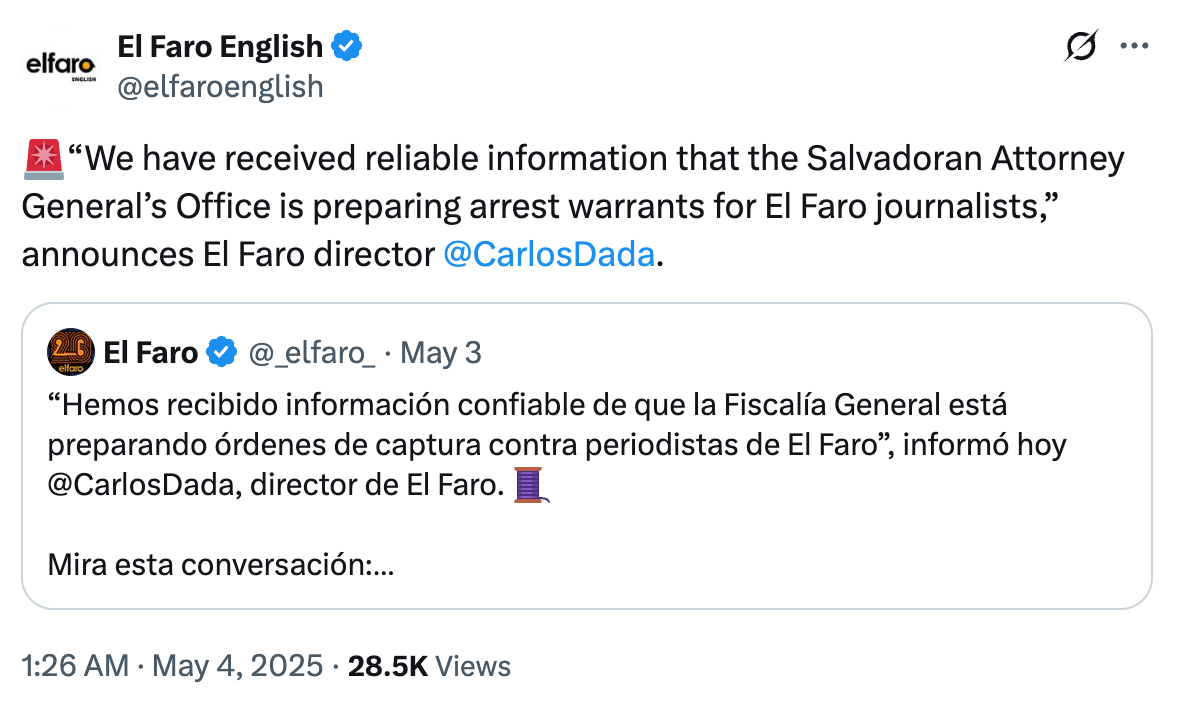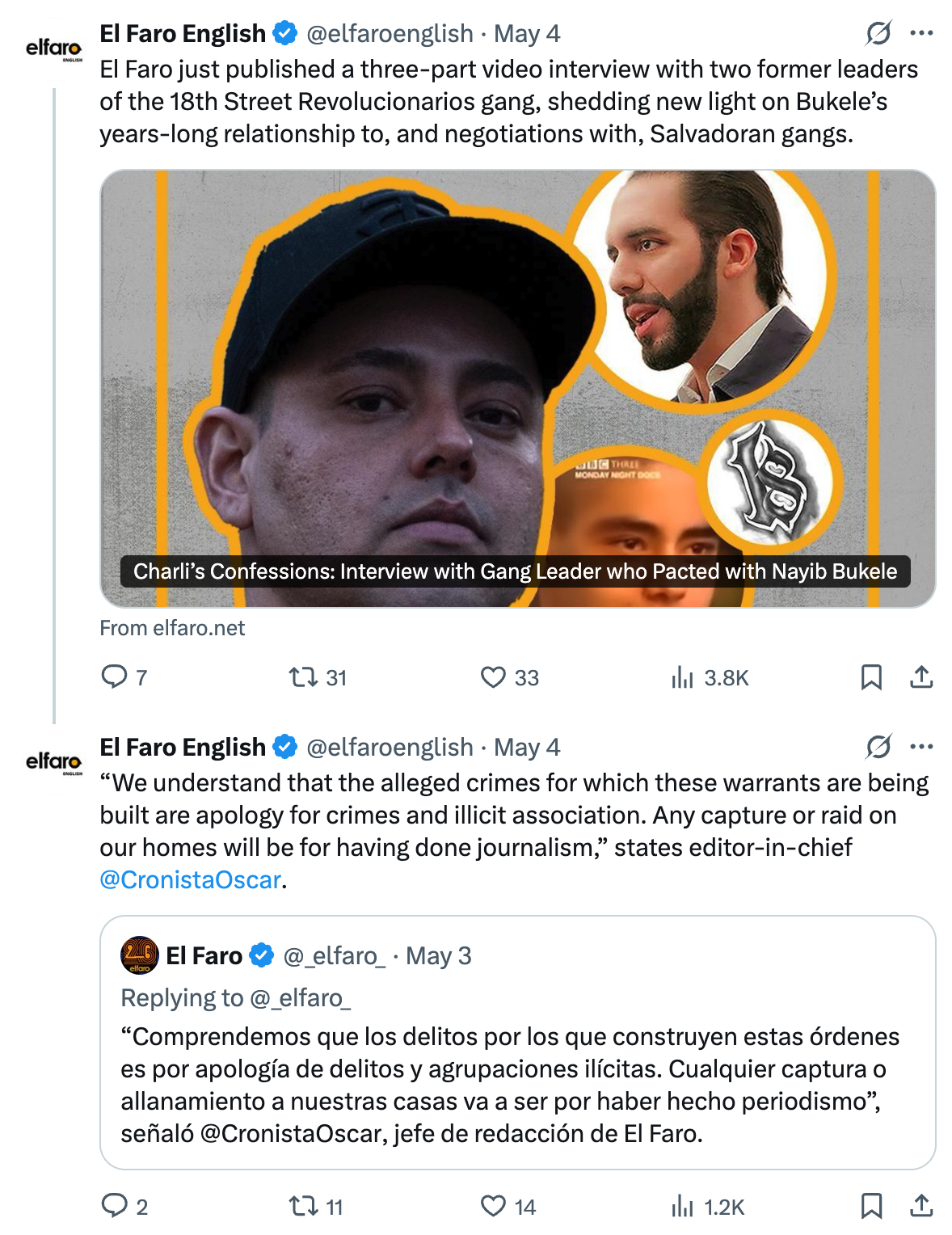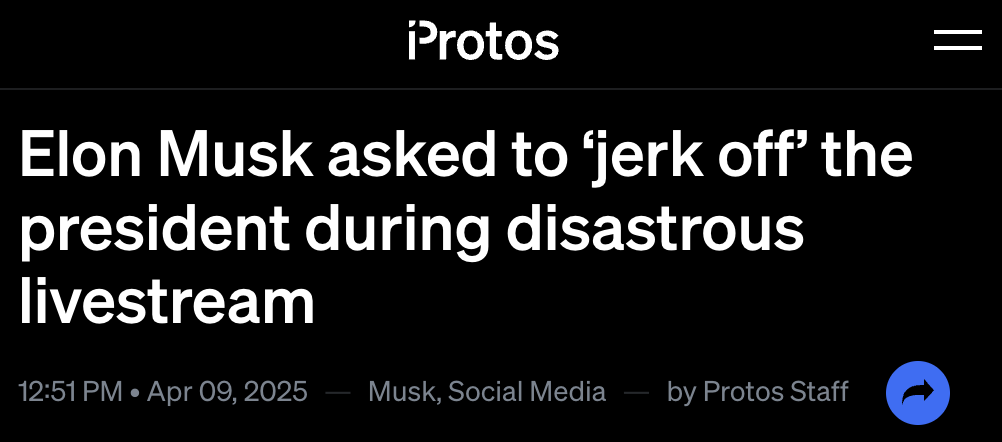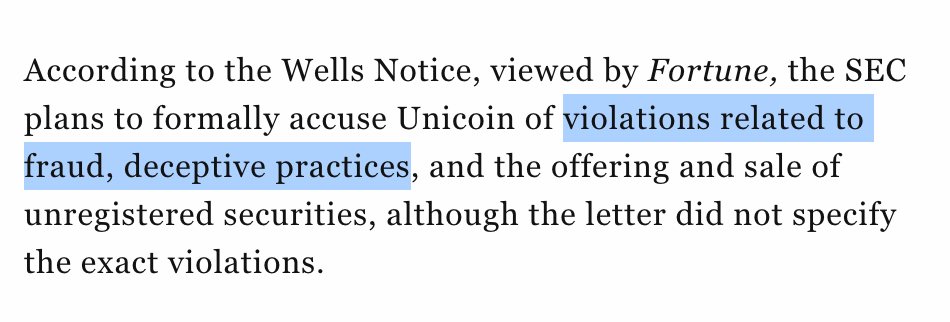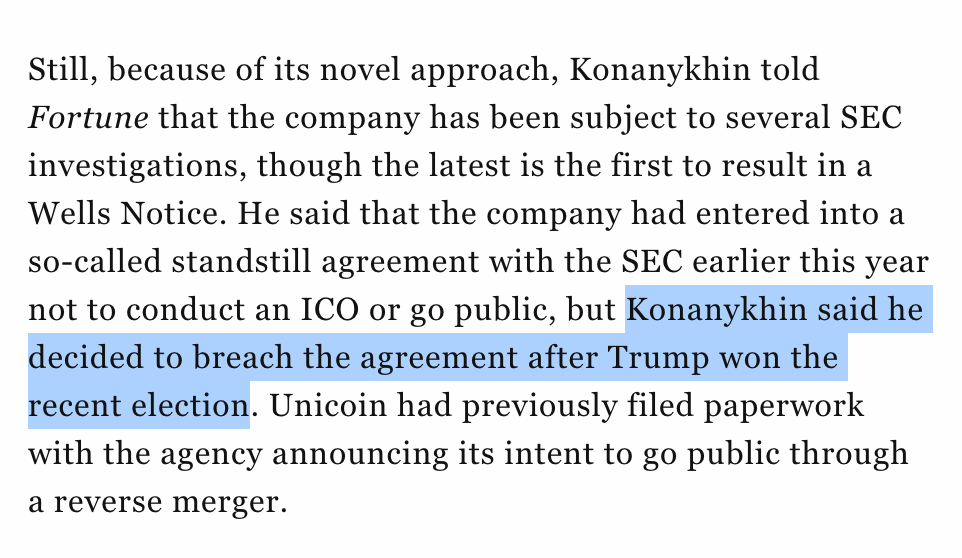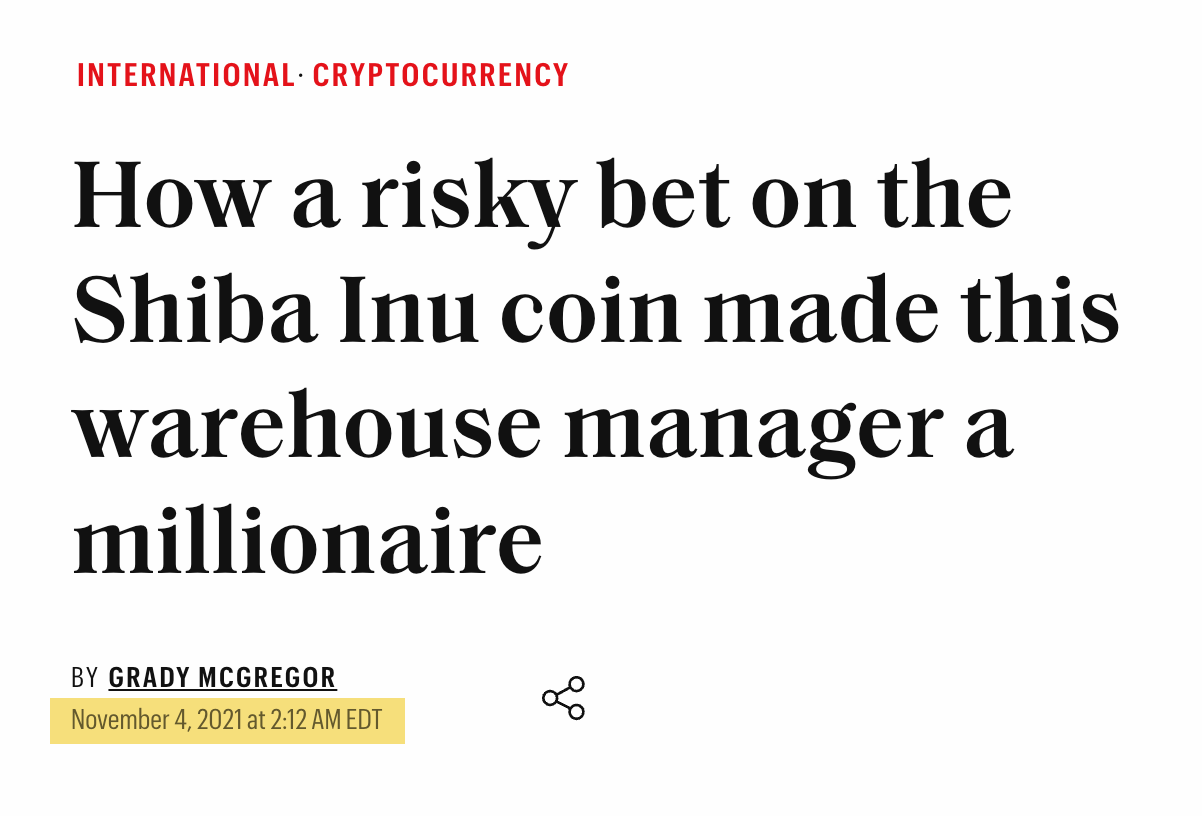El Salvador's President Bukele is reportedly preparing to arrest the journalists who have reported on the secret deals Bukele struck with Salvadoran gangs that have enabled his consolidation of power.
We’re going to keep covering this story because, frankly, it’s the only story that matters right now, and one that not everyone manages to see clearly. The political press may not understand what’s happening (or may be too afraid to say it out loud), but those of us who’ve spent decades studying how technology and power interact? We see it and we can’t look away. So, here’s the bottom line: when WaPo’s opinion pages are being gutted and tech CEOs are seeking pre-approval from authoritarians, the line between “tech coverage” and “saving democracy” has basically disappeared. It’s all the same thing. We’re going to keep doing this work because someone has to. Because understanding how technology and power interact isn’t just an academic exercise anymore — it’s about whether we’ll have an innovation economy left when this is all over.
